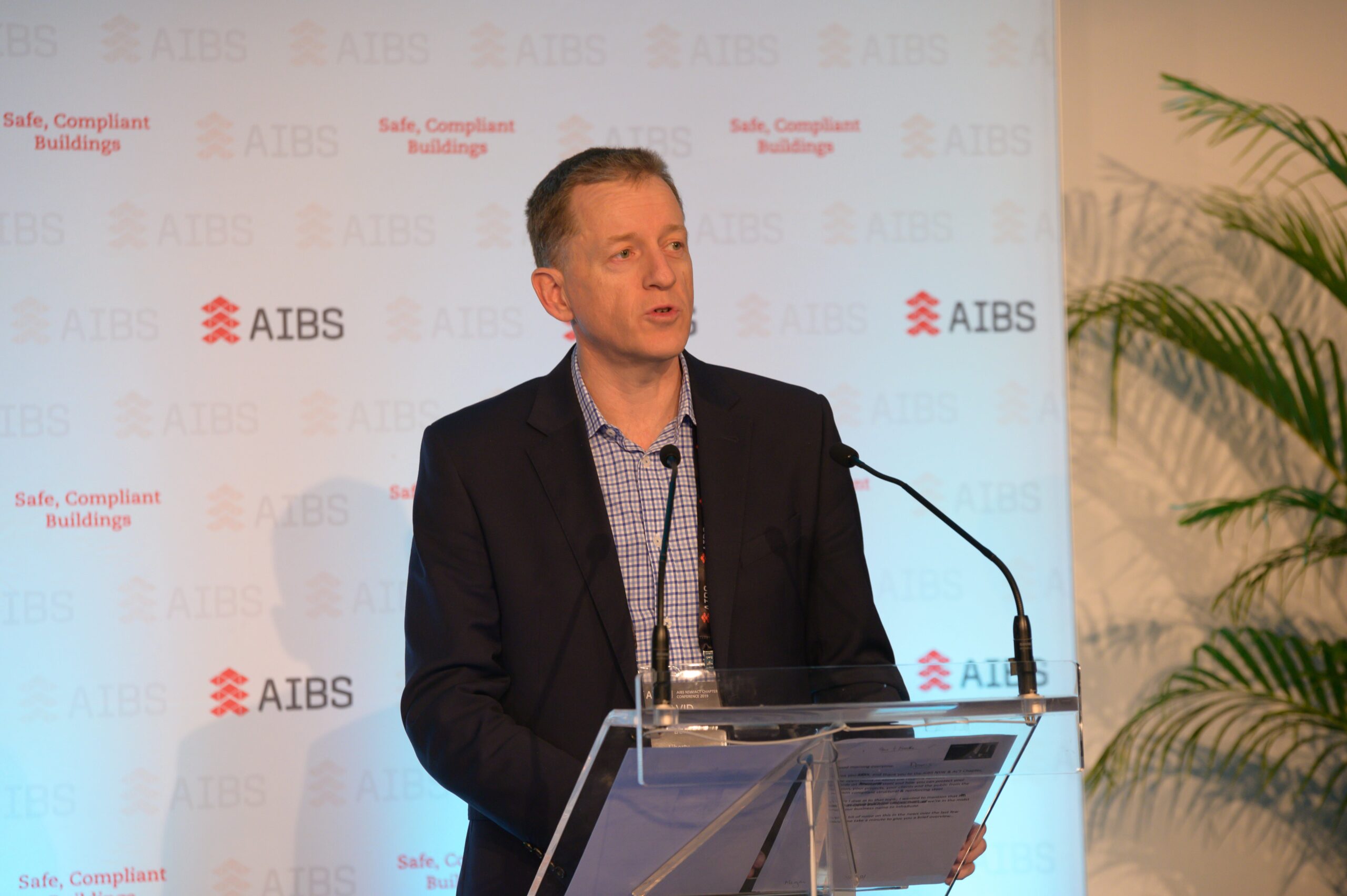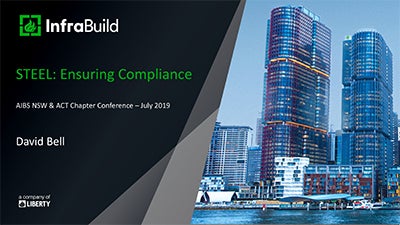
AIBS delegates heard InfraBuild’s David Bell explain how compliant steel can help reduce risk to construction companies, their clients and their projects.
The construction sector has made great strides in recent years towards implementing rigorous compliance regulations, but ongoing vigilance is needed to ensure building materials meet those regulations.
This was the message given by InfraBuild Construction Market Manager David Bell to construction industry professionals at the Australian Institute of Building Surveyors (NSW & ACT Chapter) Conference in July 2019.
David’s presentation, STEEL: Ensuring Compliance, which can be downloaded here, offered an overview of the challenges the construction sector faces from non-compliant building products (NCBPs) and how Australian Standards can help protect companies’ reputations, their projects, clients and the public from the risk of non-compliant structural and reinforcing steels.

He said that challenges associated with non-conforming and non-complying products exist right throughout the construction market and that injuries and fatalities have resulted from products that failed to meet required Standards. He revealed the scale of the problem facing the sector, with 50,000 tonnes of imported fabricated structural steel arriving in Australia every month, equivalent to the amount of steel contained in the Sydney Harbour Bridge.
The provenance of the steel used in the Australian market is also set to come under increasing scrutiny now that the Australian government has enacted legislation to stamp out Modern Slavery. The legislation has implications for large national business with annual turnovers in excess of $100m and will require that they pay increased attention to their supply chains.
Abiding by Australian Standards helps avoid risk
Australian regulators have worked hard to ensure Australian Standards are robust, transparent and definitive. And the steel sector has cooperated with those regulators to strengthen the already strong compliance measures enshrined in the various Standards.
David explained to delegates that in 2016 updates were made to the four AS/NZS Standards covering the manufacture of structural steels. These updates incorporated the following mandatory measures to help bolster the compliance regime:
- A requirement for type testing, minimum production testing and inspections to be carried out by the manufacturer.
- A requirement for permanent markings on hot rolled structural steel made to AS/NZS 3679.1, including the need for the marking to be clearly visible, applied at regular intervals and no more than 4m apart. Sections made to AS/NZS 3679.1 and supplied by InfraBuild carry the mark ‘LS AS’.
- For tubular sections manufactured to AS/NZS 1163, line markings are required that identify the manufacturer, the mill where the section was made and the time and date of manufacture (or another identifier that provides smilar product traceability and control measures).
- For hot rolled sections to AS/NZS 3679.1, there is a requirement to have a painted stencil with minimum levels of information on it that identify the nominal size and shape, the grade and a mark allowing it to be traced to a test certificate.
- Mechanical and chemical testing must be done by accredited laboratories.
- A requirement that test certificates be made available.
- Minimum and mandatory levels of information on test certificates. Prior to 2009, there were no requirements for what information need to be contained on a test certificate, but there are now clear and mandatory requirements for what information must be provided.
- To ensure a test certificate contains the requisite information, InfraBuild has provided a test certificate checklist as part of its ‘Strengthening Compliance Requirements’ brochure here.
In 2016, a new Standard, AS/NZS 5131, was also released relating to the fabrication and erection of structural steel, further strengthening the links between the design, manufacture and fabrication of structural steel.
Also, for reinforcing steels, InfraBuild supplies its products with unique bar markings and bundles with unique identification tags that allow verification of the products and ready comparison with the design drawings.
In summary, David said, Australian Standards provide a robust framework and InfraBuild works hard to ensure their structural and reinforcing steel products used in projects Australia-wide can easily and readily demonstrate that they meet the requirements of those Standards.
Please contact us for any feedback or media enquiries about this content.
Subscribe to the
InfraBuild newsletter
Receive regular updates on news, case studies as well as the latest products and services.
